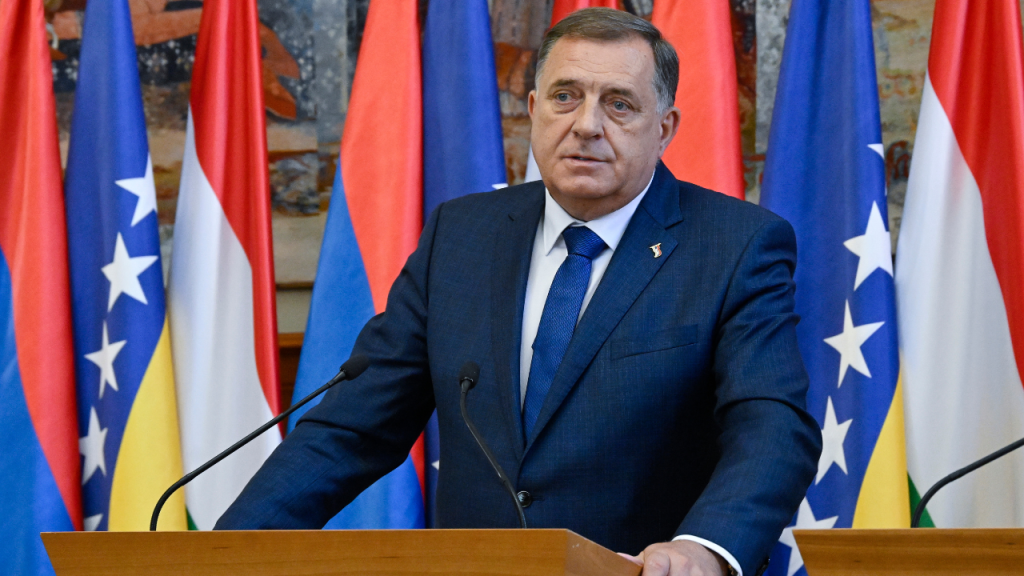The leader of Bosnia’s Serb portion has reiterated his threat to split up the Balkan country ahead of a planned U.N. vote on establishing an annual day to commemorate the 1995 genocide in which over 8,000 Bosnian Muslims were killed by Bosnian Serbs. The proposed U.N. resolution sponsored by Germany and Rwanda has sparked protests and a strong lobbying campaign against the measure by the Bosnian Serb president, Milorad Dodik, and the president of Serbia, Aleksandar Vucic. The resolution does not explicitly mention Serbs as culprits, but the leaders claim it would brand all Serbs as genocidal.
On July 11, 1995, Bosnian Serbs overran a U.N.-protected safe area in Srebrenica, separated and killed at least 8,000 Muslim Bosniak men and boys. The U.N. General Assembly scheduled a debate on the resolution with a vote expected following the debate. Russia and China support the Serbs, while the U.S. and most Western states support the resolution. Dodik expressed on social media that the resolution is being forced upon the country and will lead to its split up. The Bosnian Serb leader has previously threatened to have the Serb-controlled territories secede from Bosnia and join Serbia.
The International Court of Justice, the U.N.’s highest tribunal, determined in 2007 that the acts committed in Srebrenica constituted genocide. The draft resolution includes this determination, and it condemns any denial of the Srebrenica genocide as a historical event. Serbian and Bosnian Serb officials, including Vucic and Dodik, continue to deny genocide and celebrate wartime leaders convicted of war crimes. They also fear possible trials and war damage payments if the resolution is adopted.
Dodik and other Bosnian Serb officials have been under U.S. and British sanctions for jeopardizing a U.S. peace plan that ended the country’s war. The Srebrenica killings were the culmination of the violent conflict that arose after the breakup of Yugoslavia. Vucic and his government have been campaigning against the resolution, arguing that it will bring negative consequences for Serbian people and could lead to trials for their involvement in the Bosnian conflict. Serb leaders have conducted a large campaign against the resolution, displaying messages that deny the genocide and glorify war criminals.
The proposed U.N. resolution to commemorate the 1995 genocide in Bosnia has sparked protests and strong opposition from Serbian and Bosnian Serb officials, who deny the genocide and continue to glorify convicted war criminals. The resolution condemns any denial of the Srebrenica genocide and actions that glorify war criminals. The Srebrenica killings in 1995 were confirmed as genocide by the International Court of Justice, making it one of Europe’s worst atrocities since the Holocaust. Serbian and Bosnian Serb leaders are concerned about the potential legal consequences and fear being put on trial for their roles in the bloodshed.













